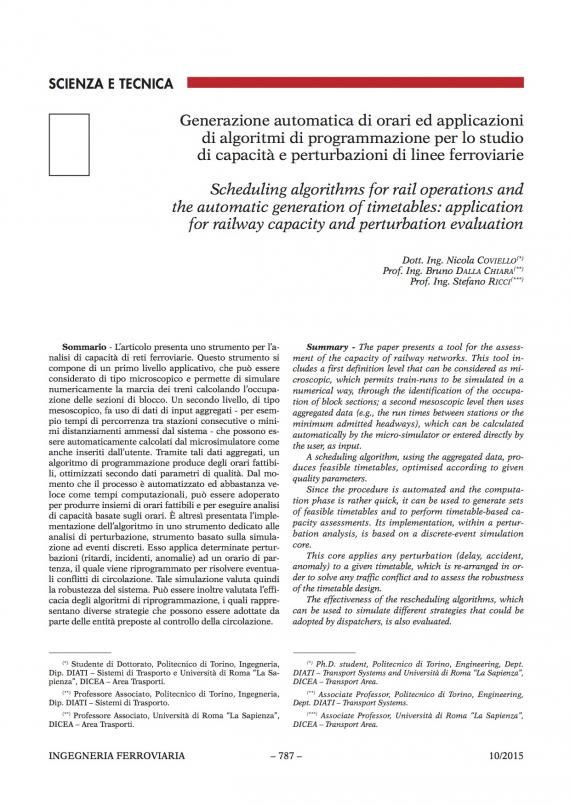
Summary - The paper presents a tool for the assessment of the capacity of railway networks. This tool includes a first definition level that can be considered as microscopic, which permits train-runs to be simulated in a numerical way, through the identification of the occupation of block sections; a second mesoscopic level then uses aggregated data (e.g., the run times between stations or the minimum admitted headways), which can be calculated automatically by the micro-simulator or entered directly by the user, as input. A scheduling algorithm, using the aggregated data, produces feasible timetables, optimised according to given quality parameters. Since the procedure is automated and the computation phase is rather quick, it can be used to generate sets of feasible timetables and to perform timetable-based capacity assessments. Its implementation, within a perturbation analysis, is based on a discrete-event simulation core. This core applies any perturbation (delay, accident, anomaly) to a given timetable, which is re-arranged in order to solve any traffic conflict and to assess the robustness of the timetable design. The effectiveness of the rescheduling algorithms, which can be used to simulate different strategies that could be adopted by dispatchers, is also evaluated.
- Ottobre


